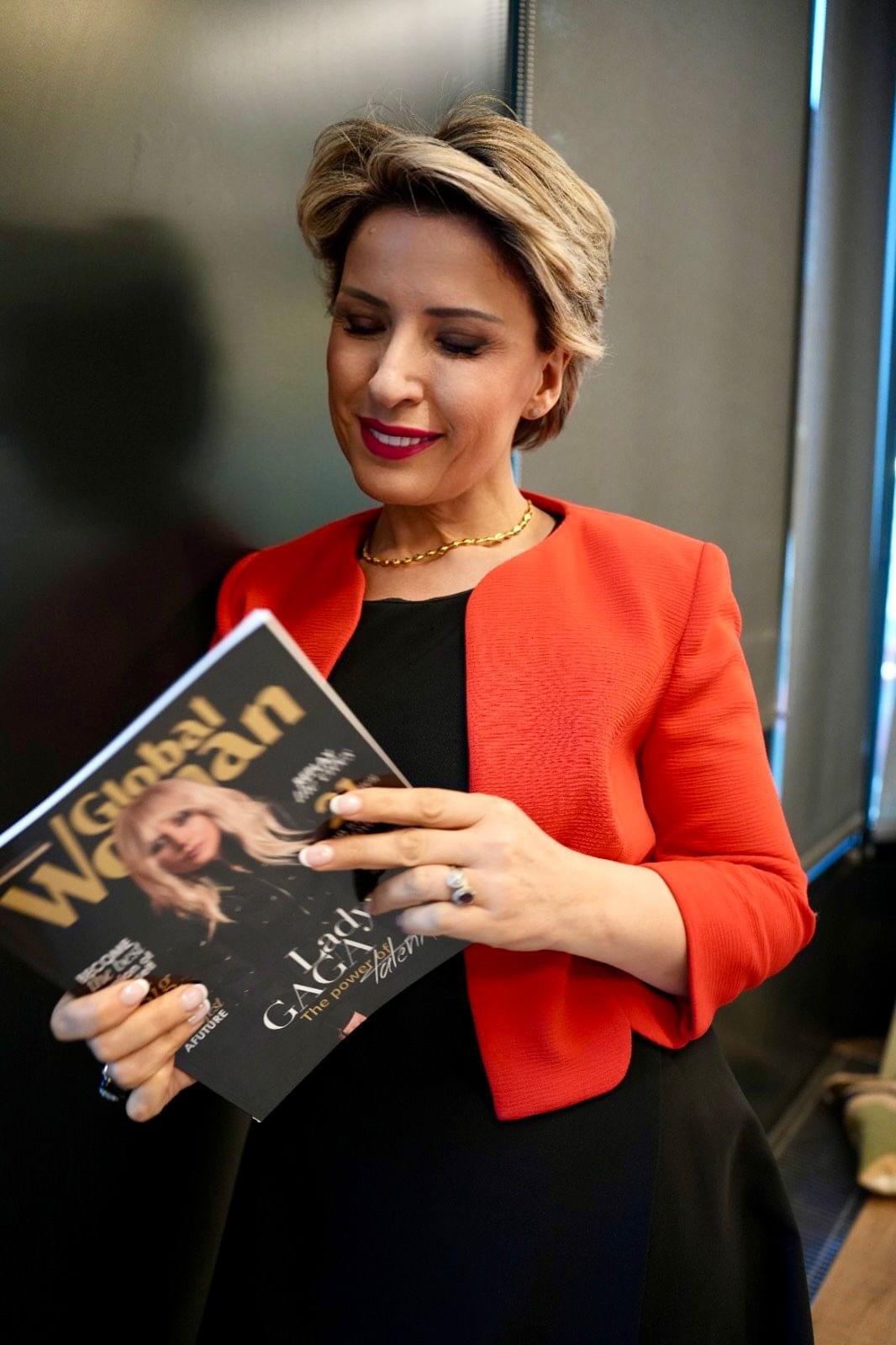Ingi Mehus: I am a migrant and a traveller!
By Mirela Sula
Ingi is a self-labelled traveller and a migrant by legal definition, who’d like to live in a world where the fear of migration is replaced with the same curiosity we have for travelling. She spent the last years travelling to more than 50 countries and she hope to use her personal and professional experience to spark curiosity for migration, using travel and storytelling as tools. When she is not working, she is usually found behind a book or a movie snacking on super salty liquorice or soaking up the sun (on the rare occasion that happens in the Netherlands) while enjoying a cold Hoegaarden with friends.
You have created a platform that brings people closer and together around the globe – where did this idea come from?
Growing up being a non-ethnic Norwegian in a small Norwegian community, you are constantly aware that you are ‘different’. I grew up thinking that being a foreigner and a migrant was something negative and actively disconnected with anything ‘foreign’. As a teenager, I got more interested in connecting with people from other cultures and started to travel and living abroad. While working for the IOM (International Organisation for Migration) in Tajikistan, I was fortunate to meet two amazing women, Ajselj from Germany and Grace from the USA. Ajselj was born in Macedonia while Grace was born in Zambia and they both shared their inspirational migration stories with me. Relating to their emotional challenges as migrants made me realise that I am a migrant too and should be proud to call myself one. I hope Pocket Stories can do the same for other migrants as Ajselj’s and Grace’s stories did for me.
What are the most inspiring stories that you have found for your ‘pocket stories’?
I love stories that surprises me, e.g. how a Dutch migrant struggled with negative stereotypes or how an Indian migrant left his materialistic life in India to pursue a more meaningful life in Europe. However, the most inspiring stories are usually the spontaneous ones that comes from the heart through a mutual exchange of stories in person, where people dare to open up about the hardships and challenges they faced as a migrant. We are currently developing a new concept called ‘Travel Faraway at Home’, where different activities in a comfortable setting engages locals and migrants, and where stories can be mutually exchanged naturally and unedited.
How do you find your stories and how do you encourage storytelling?
It started informally when I was working in the different migrant organisations and listened to stories by refugees and asylum seekers. Within my current network as well as through various conferences and workshops, I try to stimulate people to share their story by mutual exchange. This, in my experience, is the best way to encourage people to share their history in detail and from the heart. At present, anyone who would like to share their story can submit it on our new website or can contact us for upcoming storytelling events.
Can you tell us your own story?
I was born in South Korea and adopted for a new life in Norway when I was three months old. I grew up with the best family and friends in a small traditional village in Norway. My childhood was typically Norwegian, filled with skiing trips at my grandparents’ cabin overlooking the fjords, long summer days playing outdoors with my friends, and eating boiled potatoes with every dinner. With a traditional name, local parents and a thick farmer’s dialect, I was Norwegian.
Strangers spent so much effort on labelling me as a migrant from Korea, whereas my family and friends paradoxically kept assuring me I was 100% Norwegian.
However, at the age of 19, I began a decade of travelling, studying, and working abroad. During this time, my identity as a ‘traveller from Norway’ was frequently challenged. Complete strangers rarely accepted my Norwegian identity, and would ask quite personal questions about my family and heritage. “But you look Asian” became a standard response to “I am from Norway”. No matter how frustrating these remarks could be, in the end, they triggered me to re-think my identity. Strangers spent so much effort on labelling me as a migrant from Korea, whereas my family and friends paradoxically kept assuring me I was 100% Norwegian. Which is ironic as I am the same person regardless of which label I, or anyone else, assigns to me.
People’s constant need to label me, combined with my initial refusal to be labelled as a migrant, made me seriously re-think the default negative association with the migrants.
Your moto is: Let us replace our fear of migration with the same curiosity we have for travelling – where do you get your inspiration?
Migration is widely controversial, while travelling is widely popular. Yet both are means of crossing borders. I love to travel and I love living abroad, for me there is no substantial difference between the two. Unfortunately, the debate about migrants is typically based on fear-mongering, and when it’s not, it is often dry and complicated which is disengaging.
I aim to find a new way to talk about migration that is non-political and non-threatening. I want to discuss migration where we focus on the individuals, cultures and experiences, rather than statistics and policies. Due to the popularity of travelling, I think it is natural to use travel experiences that focus on mobility, people, and multiculturalism to engage a generally desensitised audience with a more nuanced discussion about migration.
I want to create solidarity between all people who move around the world and celebrate the beauty and diversity of all migrants and cultures.
What is your purpose for this initiative?
The purpose of Pocket Stories is to challenge the polarised misconception and misinformation about cultures and migration in a fun and engaging way. ‘We’ associate migration with ‘poor’, ‘illegals’, and ‘criminals’ coming to rich countries. Free mobility has become a privilege that is only extended to the smaller and wealthier part of the global population. International students, international adoptees, deployed military personnel, travellers, lifestyle migrants, and expats are usually not considered when discussing migration policies. I want to create solidarity between all people who move around the world and celebrate the beauty and diversity of all migrants and cultures.
Who is Ingi?
Ingi was born in South Korea, grew up in Norway and Australia, and currently lives in the Netherlands. She has previously worked with international migration in Australia, Indonesia, Tajikistan, Norway and the Netherlands for large international organisations like the UN High Commissioner for Refugees (UNHCR) and the International Organisation for Migration (IOM), as well as local NGOs and refugee centres. Her educational background is in Communication and she has a Master’s degree in Global Politics of Development.






